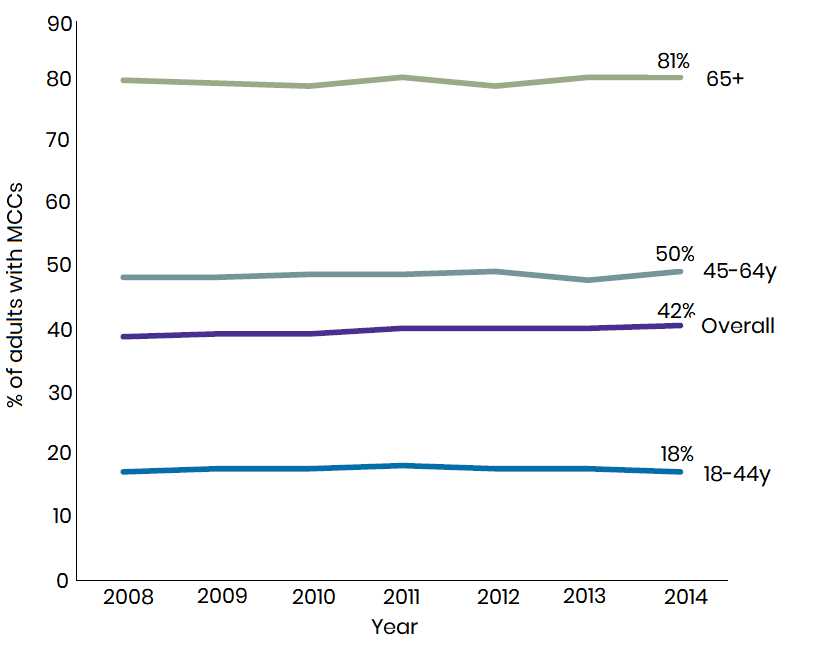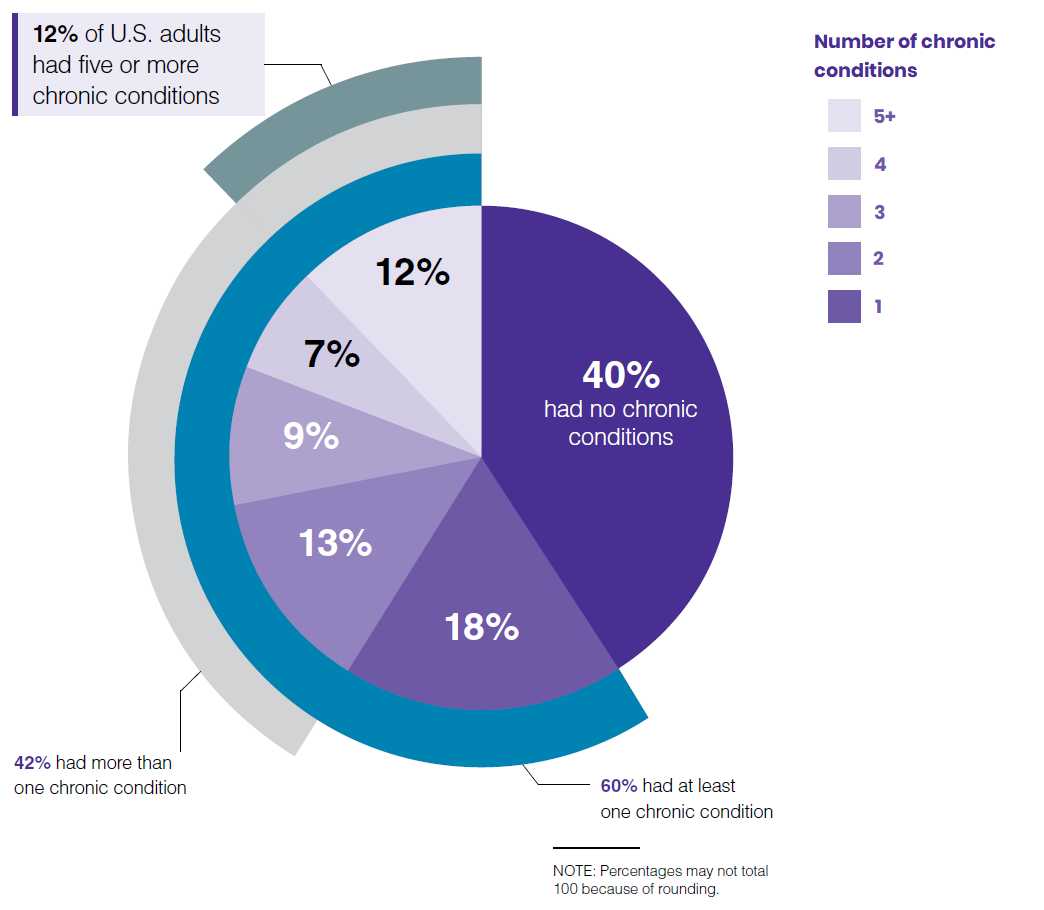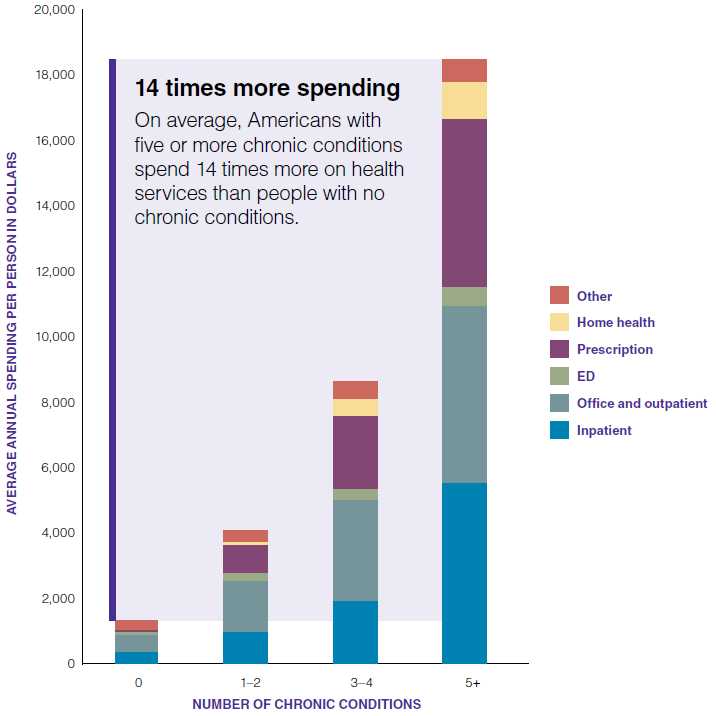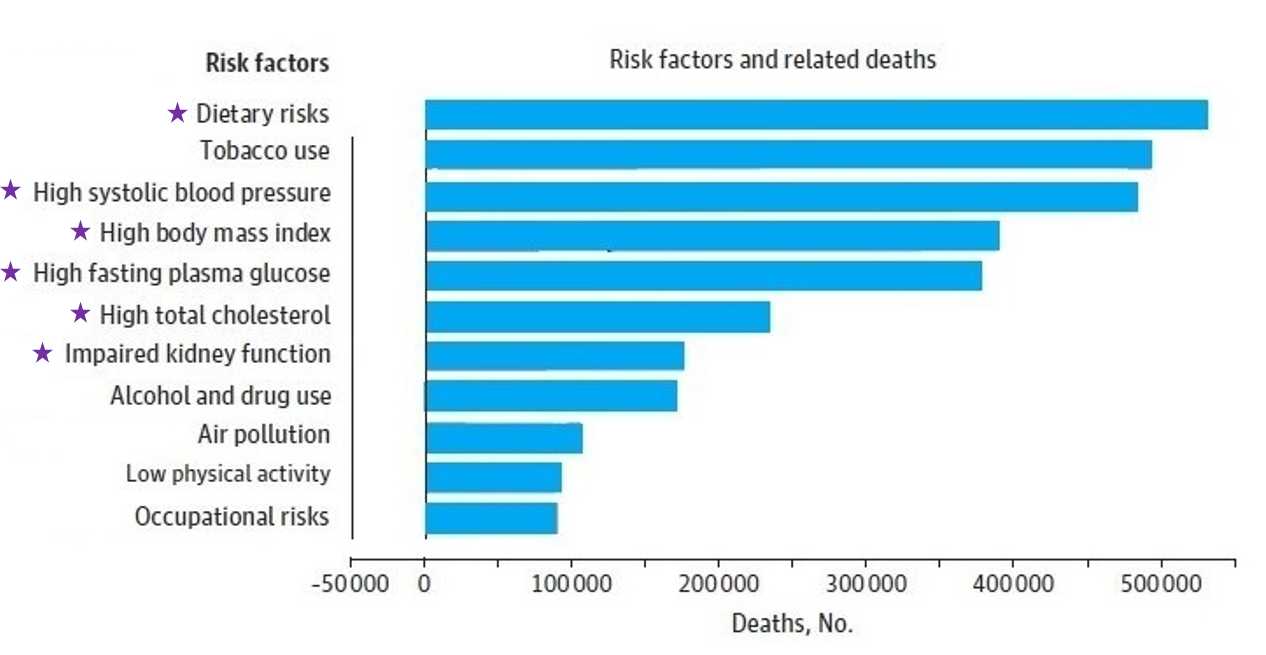Medical Backing
Chronic Disease & Nutritional intervention

A quote attributed to Hippocrates3, a Greek Physician (460BC-370BC) is the first documented indication that Food is correlated with our health.
Numerous medical & research papers have reviewed and corroborated the direct impact of Nutrition on Chronic conditions. The latest4 (Feb 2019) reviewed several meta-analysis papers and concluded “Evidence has shown that low-glycemic index (GI) and low-carbohydrate diets are effective in the management of type 2 diabetes, and the role of unsaturated fatty acids, vitamins, and bioactive compounds in chronic disease management have been the subject of intense research. However, although multidimensional approaches are important in the management of these chronic conditions, nutritional interventions are critical and central to these strategies.”
Personalized Nutrition
Recent advances in Microbiome research10 have validated the common understanding that people eating identical meals respond with high variability. Adding to the challenge is the need to consider the Medical Condition, Medications, Biomarkers, Physiological, Lifestyle, Metabolomics, and Nutrigenomic of an individual.
While the Nutritional & Medical knowledge has been expanding exponentially there are no tools to process and integrate the vast amounts of data and new knowledge. There is an urgent need to revolutionize the personalized nutrition health-care information technology including limitation in the reductionist approaches and the adoption of advanced computational data-driven technologies.
Fortunately the increase complexity is accompanied by increases market interest and opportunities for Personalized Nutrition. Recent growth of personalized nutrition market has been fueled by several key factors including increased demand for customized experiences, ongoing breakthroughs in personalized or precision medicines, greater appreciation for healthier foods and better fitness, the ability to track health data on daily basis using wearable solutions.
Nutritional & Medical knowledge has been expanding exponentially
Whereas the doubling time was an estimated 50 years back in 1950, it accelerated to 7 years in 1980, 3.5 years in 2010, and a projected 73 days by 20205
Healthcare practitioners struggle to keep on top of every piece of information that has an impact on patient care. New developments and new disciplines (Microbiome, Nutrigenome, Metabolome …) surface regularly, some supported by evidence-based research, some still premature.
2019 Therapists have a hard time absorbing, analyzing, and responding to the “Google-educated” public. The challenge is in separating facts from fiction, processing and integrating the vast amount of new medical and nutritional knowledge, building a nutritional profile for the individual and translating it to guidelines that are easy to comply with long-term.
Aggravating the challenge are busy schedules and thousands of industrial and natural food products, making selecting products with the recommended ingredients a difficult task.

MetaboList a CDSS (Clinical Decision Support System)
A clinical decision support system (CDSS) is a health Information Technology system designed to provide clinicians with clinical decision support (CDS). i.e. assistance with clinical decision-making tasks.
Chow’s Basics principles:
-
All recommendations are evidence based or following official dietary guidelines.
-
The basic nutritional guideline are based on the Mediterranean diet.
-
Dietitians & Pharmacologists monitor and maintain the database.
-
GDPR & HIPAA compliant.
-
Final dietitian decisions & approval is necessary.
MetaboList is a Clinical Decision Support System(CDSS) that analyses and considers any combination of illnesses and medications, new discipline nutritional analyses together with traditional nutrition practices, prioritizes the recommendations, resolves conflicts, and generates the Food-ID, a personal nutritional profile detailing which Nutrients & Dietary supplements to Avoid, Limit or Prefer.
Furthermore, the application translates the Food-ID to practical, rated list of food products matching the client’s Food-ID.
MetaboList algorithms and concepts are based on a 5 years clinical research at Rabin Medical Center Beilinson Hospital in Israel, hundreds of medical publications and hundreds of combined years of clinical experience.
We have taken a very conservative approach whereby each and every recommendation rely on evidence-based science published in high quality peer reviewed medical journals under the supervision of experienced and leading expert Dietitians , Pharmacologists and Physicians.
60% of Americans have at least one chronic condition, and 42% have multiple chronic conditions


People with chronic conditions have higher health care spending
The more chronic conditions people have, the more they use and pay for services of all types. As one example, those with five or more chronic conditions use twice as many drugs on average per year, compared with those with three or four conditions. As another, people with five or more conditions averaged 20 doctor visits per year, compared with 12 visits for those with three or four conditions.
Those with five or more chronic conditions spend twice as much on average as those with three or four conditions, with the majority of that additional spending going to office visits, inpatient visits, and prescriptions.

Nutritional related chronic condition* and Dietary risks** are the number one health risk factor

** Dietary risks: 83.9% of deaths are due to cardiovascular disease and remainder due to combination of neoplasms and diabetes.

